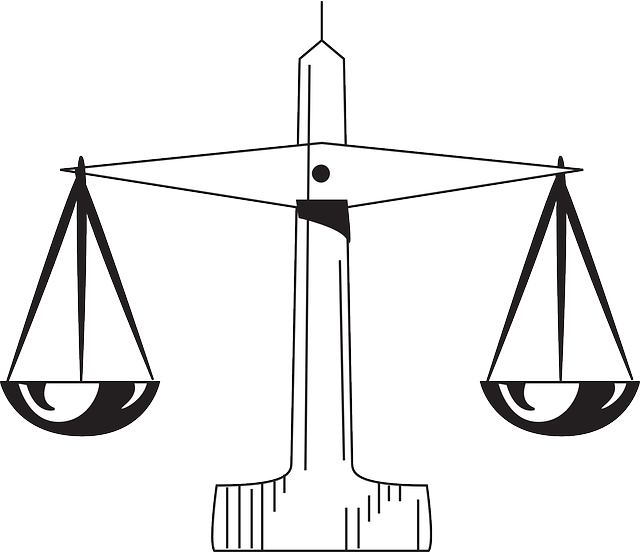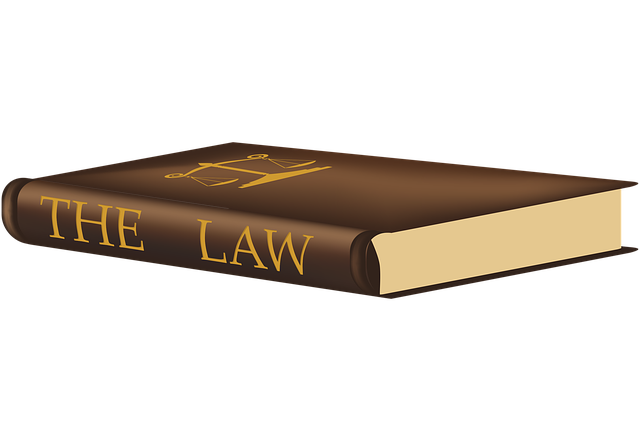
Category: Englewood Colorado Intellectual Property Law
Englewood Colorado Intellectual Property Law: A Comprehensive Guide
Introduction
In the dynamic world of business and innovation, intellectual property (IP) law stands as a cornerstone for protecting and promoting creative efforts and technological advancements. Among the diverse landscapes of IP law, Englewood Colorado’s legislation offers a unique and comprehensive framework that has garnered significant attention in recent years. This article aims to provide an extensive exploration of Englewood Colorado Intellectual Property Law, shedding light on its intricacies, impact, and future potential. By delving into various aspects, from historical foundations to global implications, readers will gain valuable insights into how this legal system shapes industries and fosters innovation.
Understanding Englewood Colorado Intellectual Property Law
Definition and Core Components
Englewood Colorado Intellectual Property Law refers to the set of legal principles and regulations designed to safeguard and regulate intellectual creations within the state of Colorado. It encompasses a broad spectrum of rights, including patents, trademarks, copyrights, trade secrets, and related areas. The primary objectives of this law are to encourage innovation by providing creators with exclusive rights to their work and to promote fair competition in the marketplace.
Key Components:
- Patent Law: Protects inventions by granting inventors exclusive rights to make, use, and sell their creations for a limited period. This includes utility patents, design patents, and plant patents.
- Trademark Law: Ensures unique commercial identifiers, such as names, logos, and slogans, are distinct and not confused with competitors’ marks.
- Copyright Law: Safeguards original works of authorship, including literature, art, music, films, and software, from unauthorized use and reproduction.
- Trade Secrets: Protects confidential business information that provides a competitive advantage, such as formulas, processes, customer lists, and marketing strategies.
- Related Areas: Also includes regulations for digital intellectual property, software licenses, and the protection of geographical indications.
Historical Context
The roots of Englewood Colorado Intellectual Property Law can be traced back to ancient civilizations where early forms of IP rights were established. Over centuries, these concepts evolved, finding expression in various legal systems worldwide. In the United States, the legal framework for intellectual property was significantly shaped by the Constitution and subsequent federal legislation.
- U.S. Constitution: The Constitution’s “Copyright Clause” (Article I, Section 8) provides the foundation for IP protection, empowering Congress to grant limited monopolies for original works of authorship to promote the progress of science and useful arts.
- Statutes: Major milestones include the Copyright Act of 1790, which established copyright law in the early United States, and subsequent amendments that expanded and refined IP protections over time.
- State Laws: Before federal legislation became comprehensive, state laws played a significant role in protecting intellectual property. Colorado, like other states, developed its own IP laws to address specific needs and gaps in federal regulations.
Significance and Broader Landscape
Englewood Colorado Intellectual Property Law is vital for several reasons:
- Encouraging Innovation: By providing legal protection, inventors, artists, and entrepreneurs are motivated to create and share their intellectual contributions.
- Promoting Fair Competition: IP law ensures that businesses operate on a level playing field by distinguishing one entity’s offerings from another’s.
- Stimulating Economic Growth: Strong IP protections attract investments, foster entrepreneurship, and contribute to economic development.
- Fostering International Trade: Coherent IP laws facilitate international commerce by providing a framework for recognizing and enforcing rights across borders.
Within the broader landscape of intellectual property law, Englewood Colorado’s legislation stands out due to its comprehensive approach, balancing the interests of creators, businesses, and the public. It serves as a model for other jurisdictions, influencing the development of IP frameworks worldwide.
Global Impact and Trends
Englewood Colorado Intellectual Property Law has far-reaching international implications, shaping global innovation and commerce. This section explores key trends and the influence of this law on a global scale.
International Influence
- Uniform Standards: The law aligns with international standards set by organizations like the World Intellectual Property Organization (WIPO) and the TRIPS Agreement (Trade-Related Aspects of Intellectual Property Rights). These agreements promote harmonization of IP laws, making it easier for inventions and creative works to cross borders.
- Global Recognition: Englewood Colorado’s robust IP framework has garnered international recognition, attracting foreign investors and innovators seeking protection for their intellectual property.
- Cross-Border Disputes: The law provides a solid foundation for resolving international IP disputes, with Colorado courts often serving as venues for such cases due to their expertise in this area.
Key Global Trends
- Digital Transformation: The digital age has significantly impacted IP laws, leading to challenges and opportunities. Digital platforms facilitate the creation and distribution of intellectual property but also raise issues of copyright infringement and online piracy.
- Open Innovation: A growing trend towards open innovation models, where companies collaborate and share intellectual property, is reshaping IP strategies globally. Englewood Colorado’s law supports this trend by offering flexible licensing options and protection for jointly developed inventions.
- Biotechnology and Genetic Property: The rapid advancements in biotechnology have sparked debates about the ownership and protection of genetic materials and biological inventions. International agreements, including those within the World Trade Organization (WTO), often reference Englewood Colorado’s IP framework when addressing these complex issues.
- Geographical Indications: Protecting regional products and their unique qualities is gaining prominence worldwide. The law’s provisions for geographical indications contribute to this trend, ensuring that authentic products bear the names of their places of origin.
Domestic Implementation and Impact
Enforcement and Adjudication
The enforcement of Englewood Colorado Intellectual Property Law is handled by various state agencies and courts:
- Colorado Department of State: This department oversees registration and recordation of intellectual property, including trademarks, copyrights, and patents.
- Colorado Courts: The state’s judicial system plays a crucial role in interpreting and enforcing IP laws. The Colorado District Courts and the Colorado Court of Appeals hear cases involving patent infringement, trademark violations, copyright disputes, and trade secret misappropriation.
- Specialized Tribunals: For complex IP cases, specialized tribunals or panels may be established to ensure efficient and expert adjudication.
Impact on Local Industries
Englewood Colorado’s robust IP legal framework has had a profound impact on local industries:
- Technology Sector: The law attracts tech startups and established companies, contributing to the growth of Denver as a thriving technology hub. Strong IP protection encourages innovation and investment in the region.
- Creative Industries: From film and music to art and design, creative professionals benefit from copyright protections, fostering a vibrant cultural scene in Colorado.
- Agriculture and Food Production: The law’s provisions for plant patents and geographical indications support local farmers and food producers by protecting unique varieties and regional specialties.
- Startup Ecosystem: Englewood Colorado’s favorable IP climate encourages entrepreneurship, with many startups choosing to establish roots in the state due to its supportive legal environment.
Challenges and Future Considerations
While Englewood Colorado Intellectual Property Law has proven effective, it faces challenges and must adapt to emerging trends.
Contemporary Challenges
- Online Infringement: The rise of the internet has made copyright infringement and online piracy more pervasive, posing challenges for content creators and media companies.
- Standard Essential Patents (SEPs): The increasing importance of SEPs in telecommunications and other industries raises questions about fair licensing terms and potential anti-competitive practices.
- International Enforcement: While Colorado courts are adept at handling international IP cases, ensuring effective enforcement across borders remains a challenge.
Future Potential and Reforms
To address contemporary challenges and capitalize on future opportunities:
- Digital Adaptation: The law may need updates to effectively manage digital intellectual property, online marketplaces, and streaming services.
- International Cooperation: Enhancing collaboration with international partners can improve cross-border IP enforcement and facilitate the resolution of global disputes.
- Flexibility in Licensing: Encouraging flexible licensing models, such as open-source licenses, can foster innovation while providing creators with control over their intellectual property.
- Geographical Indications Expansion: Expanding protections for geographical indications can support local economies and promote authentic regional products.
- Research and Education: Investing in IP research and education can help businesses and creators understand and navigate the complexities of intellectual property law.
Conclusion
Englewood Colorado Intellectual Property Law stands as a testament to the state’s commitment to fostering innovation, promoting fair competition, and protecting the intellectual contributions of its citizens. This comprehensive legal framework has far-reaching implications, shaping global IP practices and impacting local industries. As technology advances and international trade expands, this law will continue to evolve, ensuring Colorado remains at the forefront of intellectual property protection and promotion.
Through a balanced approach that benefits creators, businesses, and the public, Englewood Colorado’s IP legislation serves as a model for legal systems worldwide. By addressing contemporary challenges and embracing future opportunities, this law can continue to drive innovation, economic growth, and cultural prosperity.









